Posted on : May.20,2019 16:22 KST
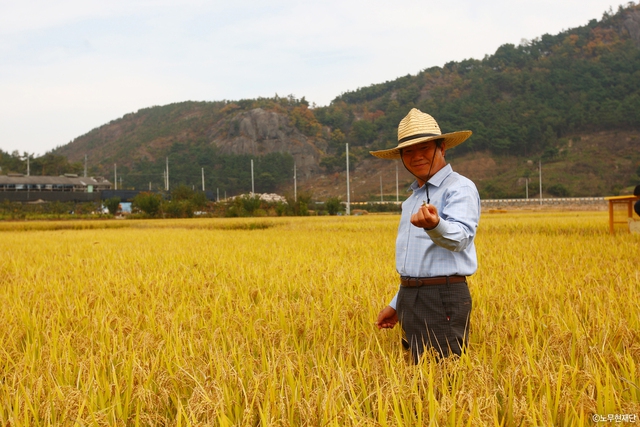 |
|
A scene from the documentary “Memory of Water.” (provided by Lotte Entertainment)
|
A look on the achievements and legacy of the former president 10 years after his passing
This coming May 23 marks 10 years to the day since the death of former President Roh Moo-hyun. Over the past 10 passages of the same season, an ongoing movement has been afoot to honor the “Roh spirit” – in everything from the “end to regionalism” and “politics of engagement” that he yearned for as a politician to the “livelihood agriculture” and “revival of farming communities” that he dreamed of after retiring from public service. Coming on the heels of the documentaries “Moo-hyun, the Story of Two Cities” (2016) and “Our President” (2017), a number of new documentaries are coming or have come to screens for the 10th anniversary of Roh’s death as a way of paying tribute to and sharing his message.
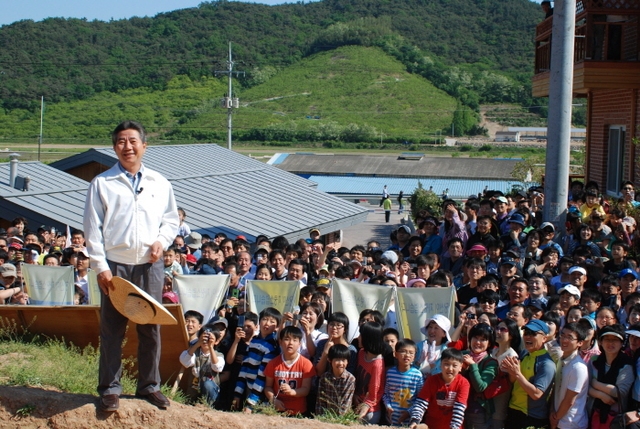 |
|
A scene from the documentary “Citizen Roh.” (provided by 300 and Co.)
|
“Citizen Roh,” which premieres on May 23, focuses on Roh’s post-presidential years, when he became the only former president of South Korea to return to his home community. In particular, it looks at the 454 days he spent in the village of Bongha after leaving office. Beginning with Roh’s homecoming cry of “This feels great!” the documentary shares the eco-friendly farming methods he worked to develop, his efforts to restore the environment in settings such as Hwapo Stream, and his dreams of a new societal discourse with “Democracy 2.0.” It could be seen as representing a vision of the future for both farming communities and South Korea as a whole that Roh dreamed of after returning to life as a model civilian.
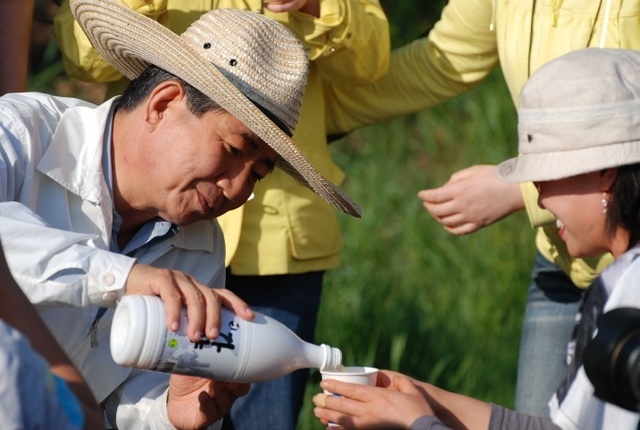 |
|
A scene from the documentary “Citizen Roh.” (provided by 300 and Co.)
|
It is refreshing to see the screen filled with images of the unaffected Roh riding his bike across a field with his granddaughter, speaking casually with visitors to Bongha, and letting ducks and freshwater snails loose in his rice paddies for farming. At the same time, the final section, where even his hometown return was overtaken by political attacks that led ultimately to his demise, reawakened feelings of anger and grief.
While “Citizen Roh” looks at the new dreams of a president who has left office, the documentary “Memory of Water” – which opened on May 15 – addresses the results achieved by his dreams over the past 10 years. “The greatest gift a grandfather can give his granddaughter is to restore and leave to the children the village where he caught frogs and crawfish when he was a boy,” Roh once said. It’s a vision that has been practiced consistently throughout the restoration of the Bongha ecosystem, including its “eco-pond,” Toerae Field, and Hwapo Stream.
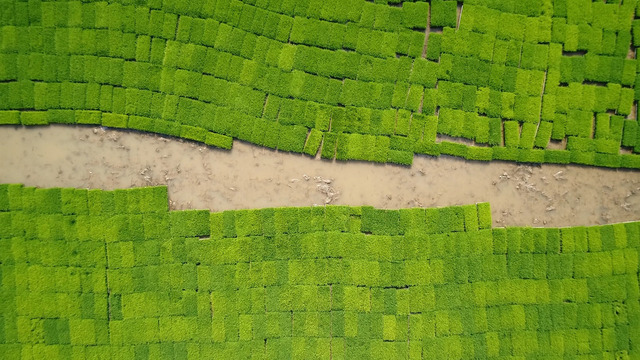 |
|
A scene from the documentary “Memory of Water.” (provided by Lotte Entertainment)
|
“Memory of Water” does not focus on images of Roh when he was alive. Instead, it adopts a nature documentary format, recording in microscopic detail the flowing of water that has nurtured so many lives and the glorious seasonal landscapes of Bongha. In the process, it depicts a dream by Roh that is still under way. The process of snow melting into water that leads the seeds to sprout in the earth, blossoming and producing rice, becomes a kind of epic poem, as do the movements of the fireflies, apple snails, mudfish, and grasshoppers that coexist with Bongha’s natural environment. The low-key narration by actor Kim Myung-gon, who served as Minister of Culture and Tourism during Roh’s administration, is also easy on the ears.
“Roh Moo-hyun and the Fools,” which opened last month, tells the story of Roh as the “foolish politician” who repeatedly lost elections while campaigning for an end to regionalism and unity between east and west, and the “fools” of the association Rohsamo (“people who love Roh Moo-hyun,” who abandoned their own livelihoods to turn him into a successful presidential candidate. The documentary looks back on Roh’s political life through interviews with 86 members of Rohsamo, Seoul Mayor Park Won-soon, actor Myeong Gye-nam, and Gangwon Governor Choi Moon-soon, among others. It devotes somewhat more time to arguing how recalling and carrying on Roh’s “foolish” legacy is more important than grief or remembrance over the man.
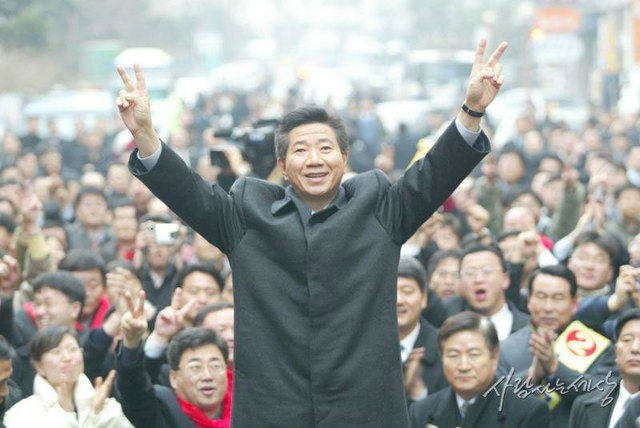 |
|
A scene from the documentary “Roh Moo-hyun and the Fools.” (provided by The Fools)
|
In contrast with previous works that depicted Roh’s challenges and frustrations as a politician, the three recent documentaries are significant in focusing on different aspects of his life and thinking and the new tasks that face the era. At the same time, they also feel a bit unsatisfying, given the symbolic significance of the 10th anniversary of Roh’s death. None of them offers an objective analysis of his administration’s achievements and limitations.
“The Roh Moo-hyun Foundation’s memorial slogan for this year is ‘the new Roh Moo-hyun,’” said Cheon Ho-seon, a director with the Roh Moo-hyun Foundation.
“Regardless of our personal ambitions, sometimes we are called into practical politics, and the time has come now to enter history,” he continued.
“There need to be efforts to objectively appraise the Roh Moo-hyun administration going forward. Hopefully, the man’s spirit will be a shared asset within that in a way that transcends divisions of ‘conservative’ and ‘progressive.’”
By Yu Sun-hui, staff reporter
Please direct comments or questions to [english@hani.co.kr]













